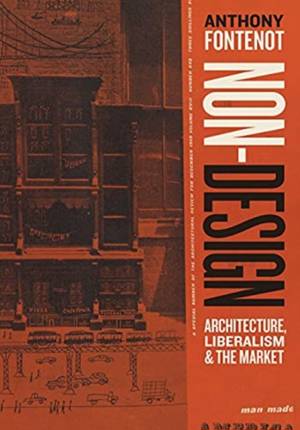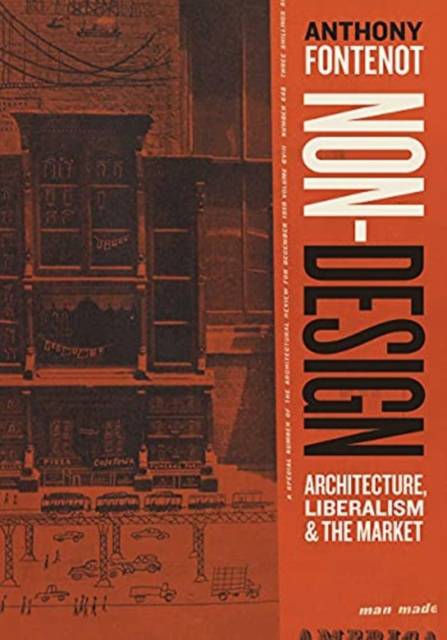
- Afhalen na 1 uur in een winkel met voorraad
- Gratis thuislevering in België vanaf € 30
- Ruim aanbod met 7 miljoen producten
- Afhalen na 1 uur in een winkel met voorraad
- Gratis thuislevering in België vanaf € 30
- Ruim aanbod met 7 miljoen producten
Zoeken
€ 75,95
+ 151 punten
Omschrijving
Anthony Fontenot's staggeringly ambitious book uncovers the surprisingly libertarian heart of the most influential British and American architectural and urbanist discourses of the postwar period, expressed as a critique of central design and a support of spontaneous order. Non-Design illuminates the unexpected philosophical common ground between enemies of state support, most prominently the economist Friedrich Hayek, and numerous notable postwar architects and urbanists like Robert Venturi, Denise Scott Brown, Reyner Banham, and Jane Jacobs. These thinkers espoused a distinctive concept of "non-design,"characterized by a rejection of conscious design and an embrace of various phenomenon that emerge without intention or deliberate human guidance. This diffuse and complex body of theories discarded many of the cultural presuppositions of the time, shunning the traditions of modern design in favor of the wisdom, freedom, and self-organizing capacity of the market. Fontenot reveals the little-known commonalities between the aesthetic deregulation sought by ostensibly liberal thinkers and Hayek's more controversial conception of state power, detailing what this unexplored affinity means for our conceptions of political liberalism. Non-Design thoroughly recasts conventional views of postwar architecture and urbanism, as well as liberal and libertarian philosophies.
Specificaties
Betrokkenen
- Auteur(s):
- Uitgeverij:
Inhoud
- Aantal bladzijden:
- 376
- Taal:
- Engels
Eigenschappen
- Productcode (EAN):
- 9780226686066
- Verschijningsdatum:
- 9/07/2021
- Uitvoering:
- Hardcover
- Formaat:
- Genaaid
- Afmetingen:
- 182 mm x 254 mm
- Gewicht:
- 1020 g

Alleen bij Standaard Boekhandel
+ 151 punten op je klantenkaart van Standaard Boekhandel
Beoordelingen
We publiceren alleen reviews die voldoen aan de voorwaarden voor reviews. Bekijk onze voorwaarden voor reviews.











